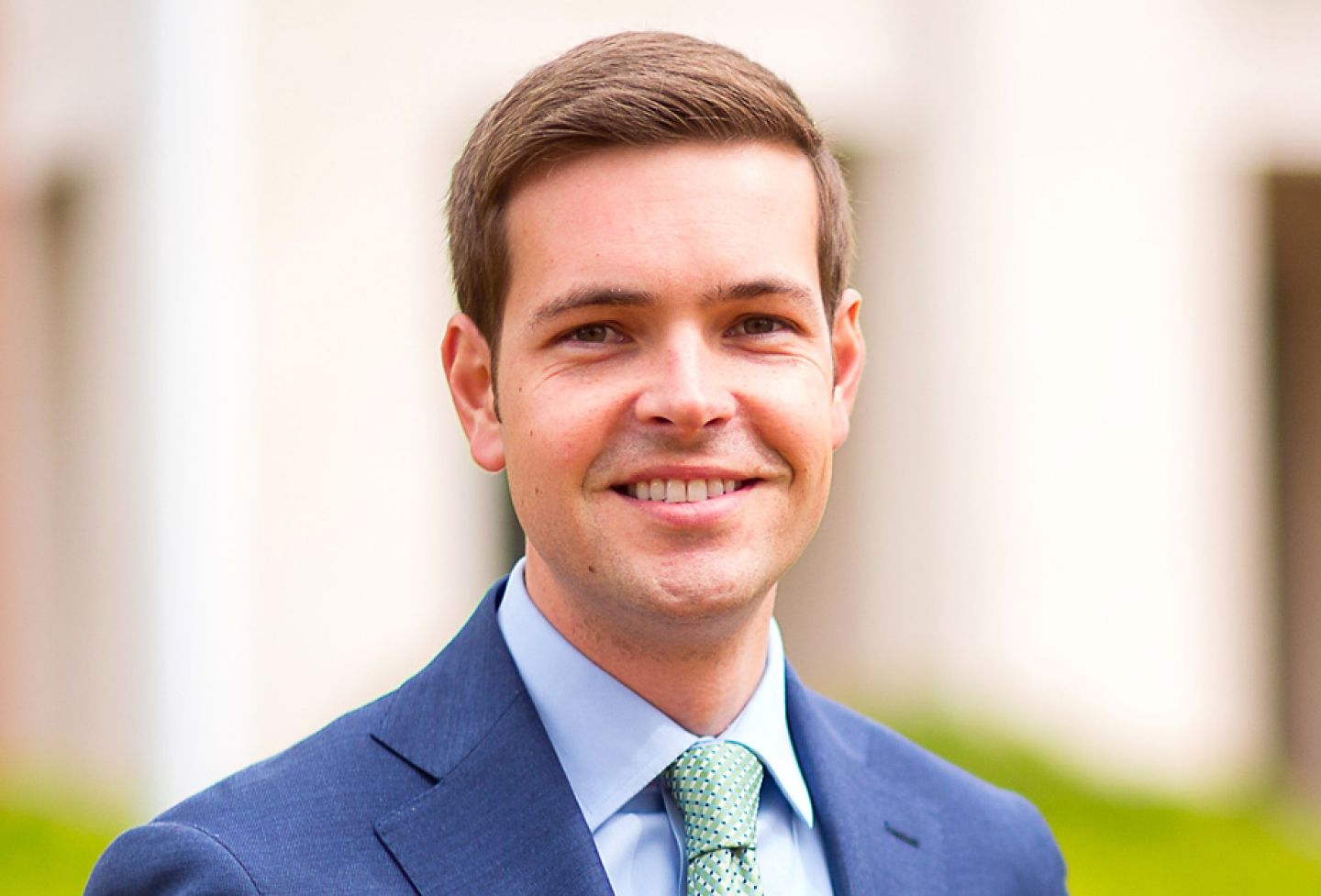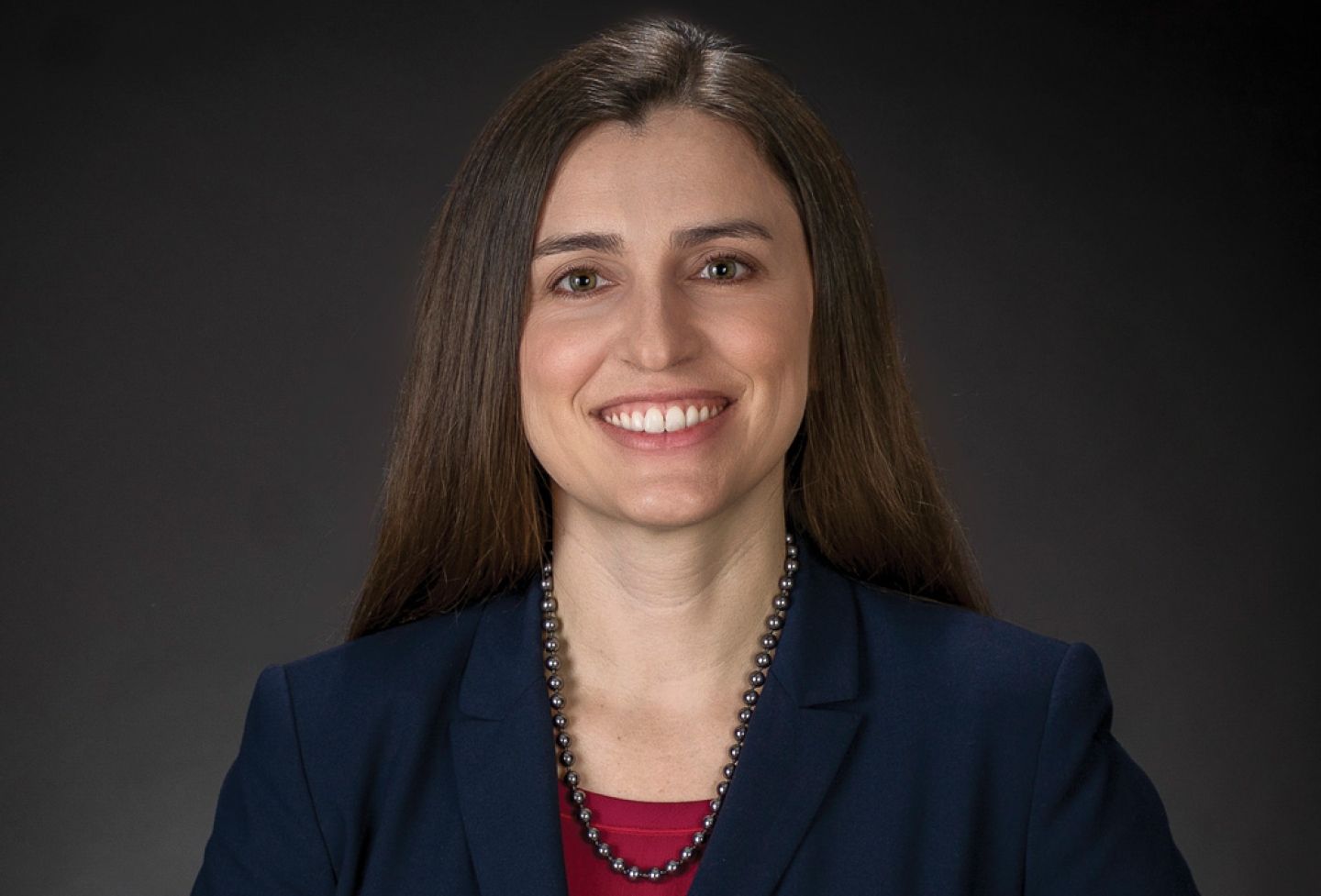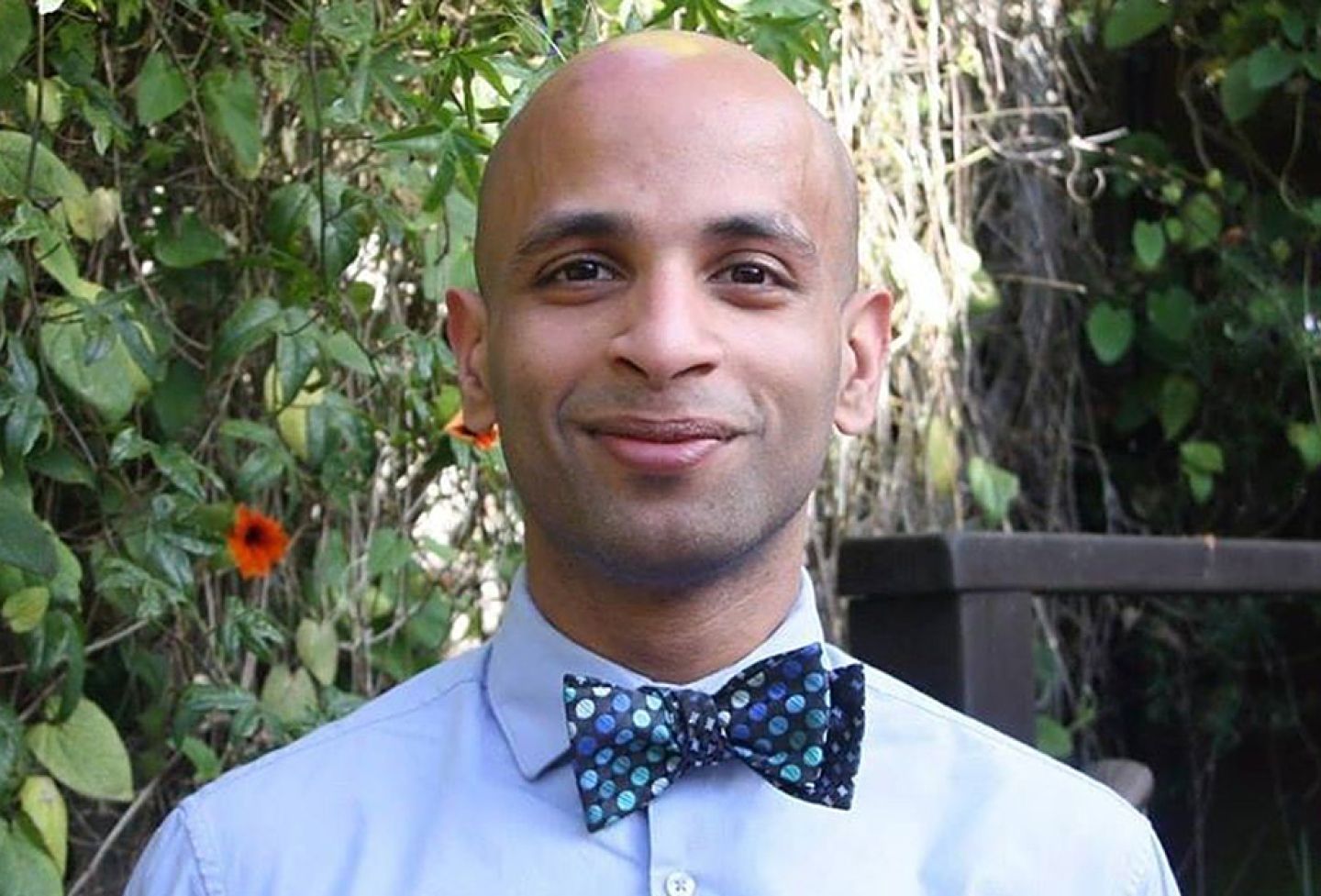“Have you been a good boy?” the Kansas gun dealer asked.
The man who wanted the gun confessed that he was a convicted felon. But when the woman next to him said she had been a “good girl,” the Baxter Springs Gun & Pawn Shop sold her the weapon that she would then transfer.
Shortly before the circuitous sale, a court had issued a restraining order against the man, at the request of his wife, who alleged abuse. The man returned home and terrorized his family. In the process, he shot and killed his 7-year-old son, before turning the gun on himself.
That’s just one of the many heart-wrenching cases Jonathan Lowy ’88 has handled as vice president and chief counsel at the nonprofit Brady. He told the story in a measured, just-the-facts speaking style that hints at the methodical approach with which he works to dismantle what he views as the irresponsible side of the gun industry.
His legal philosophy, which he laid out in a co-authored Georgetown Journal of Law & Public Policy article, essentially boils down to this: Citizens have a constitutional right “not to be shot.”
But “whatever one’s view of the Second Amendment, it’s not a tenable position that you have a Second Amendment right to negligently sell or manufacture guns,” Lowy said.
The organization he works for has gone by several different names over the years, but the key word is “Brady.” James Brady was the White House press secretary who, in 1981, bore the brunt of an assassination attempt on President Ronald Reagan. Brady lived—and though he never walked again, he and his wife, Sarah, became powerful advocates for gun control. While both are now deceased, Brady as an organization continues to advocate for social change, including policy and legislative initiatives, while taking on the gun lobby directly in court.
“When I began at Brady over 23 years ago, we were bringing some creative, trailblazing lawsuits, but we weren’t winning many of them,” Lowy said. “Over the years, I’ve seen us win more and more to the point where we have now established a body of law around the country that gun manufacturers, distributors and dealers can be liable to victims.”
Lowy’s legal team consists of five attorneys, but pro bono assistance from law firms, and the Brady organization’s broader efforts, amplify the results, he said.
In the civil suit that followed the Kansas gun sale tragedy, Shirley v. Glass, Lowy argued and won at both the state appellate and supreme court levels, resulting in the 2013 decision that established dealers can be held responsible. Delana v. Odessa Gun & Pawn followed in 2015, also argued by Lowy and his team at Brady. In that case, the Missouri Supreme Court ruled that a gun shop was negligent for selling to a mentally ill person the store had been warned about.
Firearms makers and dealers argue that they are largely immune from what happens after a sale under the federal Protection of Lawful Commerce in Arms Act, or PLCAA. Victories like those won by Brady have exposed chinks in the industry’s Kevlar.
Lowy acknowledged, though, that progress has often have been frustrated by setbacks. In reaction to their losses in court, the gun industry continues to persuade legislators to make new laws in their favor.
“It’s like playing football against a perpetual loser who constantly moves the goalposts and changes the rules,” he said in a 2014 interview for Lawdragon. The publication more recently honored him among its Legends of 2020.
If you had asked Lowy in his first year of law school, he would have said some form of public interest lawyering awaited him right after graduation. He had recently helped his father, trial lawyer Arthur Lowy, in his attempt to certify a class of victims in the U.S. court system from the Union Carbide gas leak in Bhopal, India. The federal court ultimately dismissed the cases, whereas they were litigated in India, and then handled by the Indian government, which had passed a law giving itself the exclusive right to represent the victims. Union Carbide settled out of court in 1989 for $470 million.
Upon graduation, however, Lowy decided he wanted to build some additional skills as well as pay off his student loans. He worked for two law firms, McGuireWoods and Dickstein Shapiro, before taking on civil rights and personal injury cases.
His bona fides as a trial lawyer got the attention of Dennis Henigan ’77, who was looking to add to his team at Brady. What Henigan offered was the chance to join an unglamorous, uphill fight against perhaps the most powerful special interest group in the nation, the National Rifle Association. Lowy eagerly signed on. Today, he occupies the role of his mentor; Henigan is now vice president of legal and regulatory affairs at Campaign for Tobacco-Free Kids.
“The gun industry thought Congress had granted it legal immunity over 15 years ago, with the ill-named Protection of Lawful Commerce in Arms Act,” Henigan said. “It did not account for the legal creativity and utter tenacity of Jon Lowy. Time and again, Jon has achieved justice for gun violence victims against long odds. Jon is a modest, unassuming lawyer, with a natural instinct for the jugular. For the gun industry, he is the legal nightmare that never goes away.”
Lowy, who has litigated cases in about 45 states, is currently representing the family of a 13-year-old Pennsylvania boy who was shot and killed at his friend’s house. “The other young boy thought the gun was unloaded because the magazine was removed,” he said. “There are design solutions to this problem that have long been known by the gun industry.”
Though the case was originally dismissed under PLCAA, Lowy appealed and received the first-ever ruling that the act is unconstitutional, paving the way for an en banc review of that decision.
While his legal work can be all-consuming, Lowy has also managed his time well over the years. Random House published two books of historical fiction that he wrote, “Elvis and Nixon” and “The Temple of Music,” both of which received enthusiastic reviews. The latter focuses on the assassination of President William McKinley.



